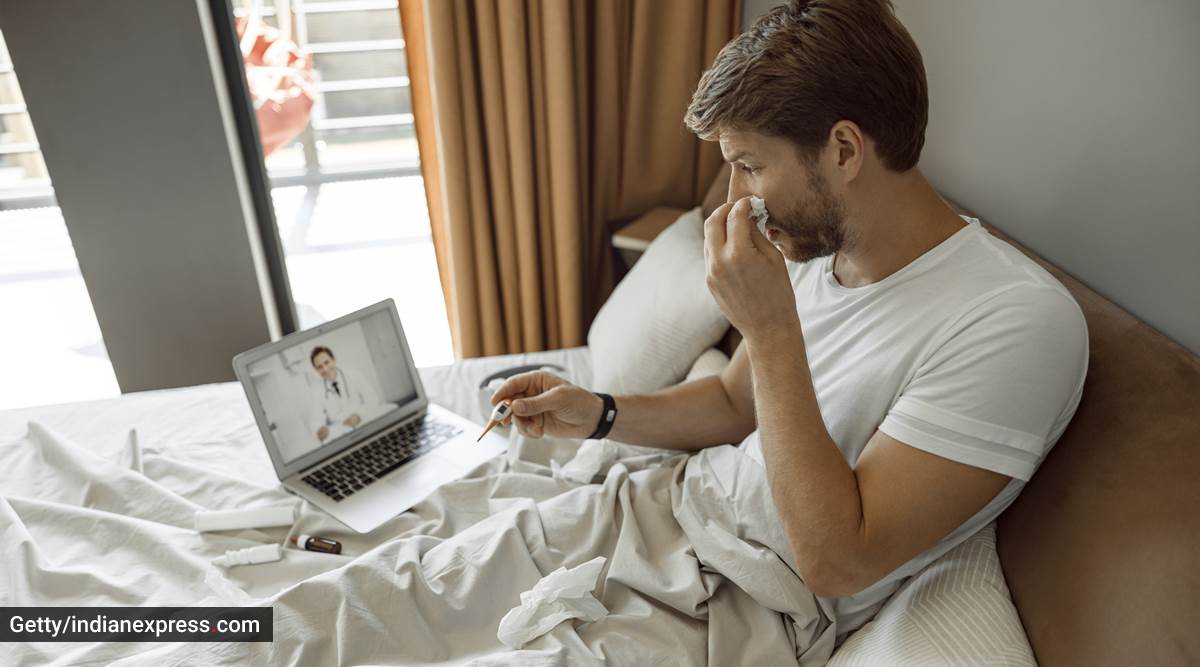Since people who take ill can infect others, self-quarantine can be a preventable measure, suggests Dr Manjeet Singh Arora, Sr General Physician, Fortis Hospital, Mulund

The key to slowing the spread of COVID-19 infection, is to stay at home and stay clean at all times. Home hygiene is being focused on now more than ever. While some people may think that because they are home, they may be safe from the virus, it may not always be the case, since any kind of exposure to any potentially-infected person may risk transmission.

Dr Manjeet Singh Arora, Sr General Physician, Fortis Hospital, Mulund says the COVID-19 virus has created the need for emergency health structures across the world; most people who have fallen sick with COVID-19 have experienced mild to moderate symptoms and have successfully recovered without special treatment.
“It is understood that the virus that causes COVID-19 is mainly transmitted through droplets generated when an infected person coughs, sneezes, or exhales. These droplets are too heavy to hang in the air, and quickly drop to the floor and other surfaces. You can be infected by breathing in the virus if you are within close proximity of someone who has COVID-19, or by touching a contaminated surface and then your eyes, nose or mouth. The goal of the self-quarantine is to prevent transmission,” he says.
Self-quarantine at home
Since people who take ill can infect others, self-quarantine can be a preventable measure. “To self-quarantine means to separate yourself from others because you have been exposed to someone with COVID-19 even though you may not have symptoms.”
ALSO READ | A pandemic is never absolutely over, but it can be controlled: Dr Naresh Trehan
During self-quarantine, the doctor says that you can monitor yourself for the following symptoms:
– Fever with chills
– Sore throat with itching
– Headache
– Shortness of breath/difficulty in breathing
– Muscle aches/body pain
– Loss of taste or smell
– Chest pain
– Rashes
– Nausea
– Vomiting and diarrhoea
“If you have tested positive for COVID-19, your healthcare provider may advise you to isolate yourself in the confinement of your home. Home-based quarantine services have been initiated taking into consideration the increase and decline in severe cases and hospital admissions,” says Dr Arora.
ALSO READ | How do COVID-19 triggered blood clots affect the heart? A doctor answers
The dos:
* Stay home, do not step out even if you are asymptomatic (have none of the above symptoms).
* Isolate yourself from other members at home, especially the elderly and those with co-morbid conditions.
* Use a separate toilet, if possible.
* Book prior appointments with a doctor.
* Maintain good hand hygiene.
* Wear a triple layer medical mask at all times.
* Discard mask after 8 hours of use, or earlier if it becomes wet or visibly soiled.
* Cover your cough and sneezes.
* Clean and disinfect your home at regular intervals.
* Wash laundry thoroughly in hot water.
* Discard mask only after disinfecting it with 1 per cent sodium hypo-chlorite solution.
ALSO READ | What patients on dialysis need to know about controlling diabetes
The don’ts:
* Do not treat yourself.
* Avoid public areas and transportation.
* Do not share space with others, if possible.
* Do not let in non-essential visitors.
* Do not share dishes, utensils, cups, towels or bedding with family members.
* Don’t make random visits to hospitals.
* Do not exercise or work out outside.
* Don’t end/break your quarantine without medical clearance.
“Remember, doctors and healthcare experts are here to protect you, follow their advice, remain calm and stay positive,” the doctor cautions.
For more lifestyle news, follow us: Twitter: lifestyle_ie | Facebook: IE Lifestyle | Instagram: ie_lifestyle
? The Indian Express is now on Telegram. Click here to join our channel (@indianexpress) and stay updated with the latest headlines
For all the latest Lifestyle News, download Indian Express App.
Source: Read Full Article






